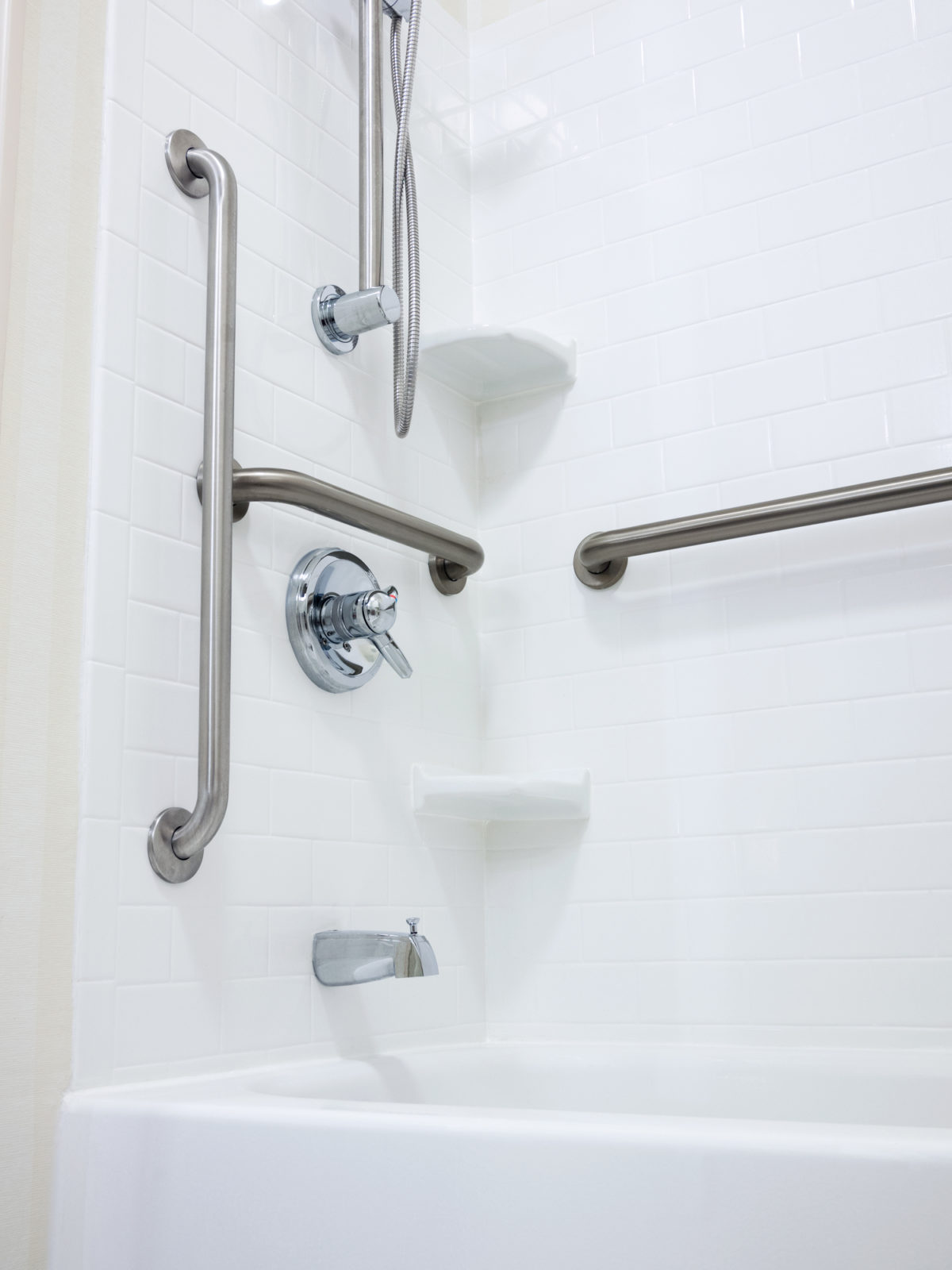Help! My Mom is Afraid of the Shower!
by Liz Heape-Caldwell, BS, MBA, CMC
January 15, 2022

Donna and her husband David live independently in their own home. Two years ago, Donna was diagnosed with dementia. David became her primary caregiver; however, as her condition progressed, he needed help. He was no longer able to assist his wife with bathing, as she would become agitated and downright angry when he tried to get her in the shower. This was a complete change of behavior for Donna who had always showered daily, had her hair and makeup done, and was dressed to the nine’s at all times. David was at a loss.
The reluctance to shower is something we experience on a regular basis. Oftentimes, it can be the tipping point when the families reach out for help. They have tried to create a schedule for bathing, used multiple approaches, and even reached out to other family members for help with no success.
So, the question is how common is it for older adults with a cognitive impairment to experience issues with bathing? First, it is very common for an individual with Alzheimer’s disease or other dementias to become afraid of showering. This fear manifests as refusal and can be coupled with agitation, anger, and even sadness. According to the Alzheimer’s Association, “Bathing can be a challenge because people living with Alzheimer’s may be uncomfortable receiving assistance with such an intimate activity. They may also have depth perception problems that make it scary to step into the water. They may not perceive a need to bathe or may find it a cold, uncomfortable experience. If people regard bathing as scary, embarrassing, unpleasant, or uncomfortable, they may communicate their discomfort by verbally and/or physically resisting attempts to bathe. In some cases, this can escalate and become be unsafe and upsetting for all who are involved” (ALZ, 2021).
Now that we know how common this is, how can we make the bathing process not only successful but, comfortable as well? There are many tips and tricks that can assist an individual with cognitive impairment in the shower. However, it is trial and error. Some will be more successful than others. Unfortunately, there is no one trick that works for everyone all of the time. We are individuals who are unique and different; therefore, approaches will be different. It is likely that you will have to try several to see what works.
1) Prepare the bathroom ahead of time.
- Is it cold? Turn on a small heater. Too warm? Open the window to allow it to cool down.
- What are their favorite scents or products? Gather those in one easy-to-grab area.
- Lie out the towel, washcloth, and clothing for after the shower.
- Turn on the water right before to get to the ideal temperature.
- Use an opportunity such as assisting with changing out of pajamas as a perfect time for showering.
2) Obtain any needed assistive devices.
- Would a shower chair or bench help? Is it difficult for your loved one to stand that long? Contact the doctor for ordering and arranging for the medical company to deliver. They are also pretty affordable to purchase.
- Do you need to install some grab bars? Talk with your local handyman to install ones that screw into the wall. The grab bars that suction to the wall can be dangerous.
- Use anti-slip mats both in and out of the shower. However, test this out ahead of time. Sometimes the ones inside the tub can be more slippery. In that case, get it out.
3) Be reassuring, don’t try to rationalize or argue.
- Is your loved one telling you they already showered today? You respond with “Oh, that’s great but, now you are in for a treat with your spa time”. It is then up to you to create a “spa-like” experience, which you would have done during your bathroom setup. This may include music, lighting a candle, etc.
- Your loved one begins to get angry or cry. You respond with something that will distract them from their fear. For example, turn on soothing music, talk about a fond memory, discuss something they love.
- If your loved one becomes overly agitated, walk away. Give it time and try another approach.
4) Encourage independence.
- Apply soap on the washcloth and hand to your loved one. This allows them to take part in the process, rather than just doing it for them.
- Prepare a schedule. Your loved one does not have to shower every day as they did in the past. 2-3 times a week is sufficient. Set the “showering days”.
- Being bathed by a loved one can feel intrusive and embarrassing. Needing help with bathing may feel like the ultimate loss of independence.
Encouraging your loved one to bathe can be difficult and oftentimes, frustrating. Remember to be patient and don’t push too hard. After a successful bathing session, apply a favorite lotion, brush/style hair, and assist with getting dressed. Remember to keep it a positive experience filled with patience, a gentle touch, and regular reassurance.
Liz, a Care Manager with Elder Options, possesses a passion for helping others regardless of age or socioeconomic status. Liz is well versed in client assessments, end-of-life and dementia care, long-term care insurance, community resources, and entitlement programs such as Veterans Benefits and the Medi-Cal-based Assisted Living Wavier.

